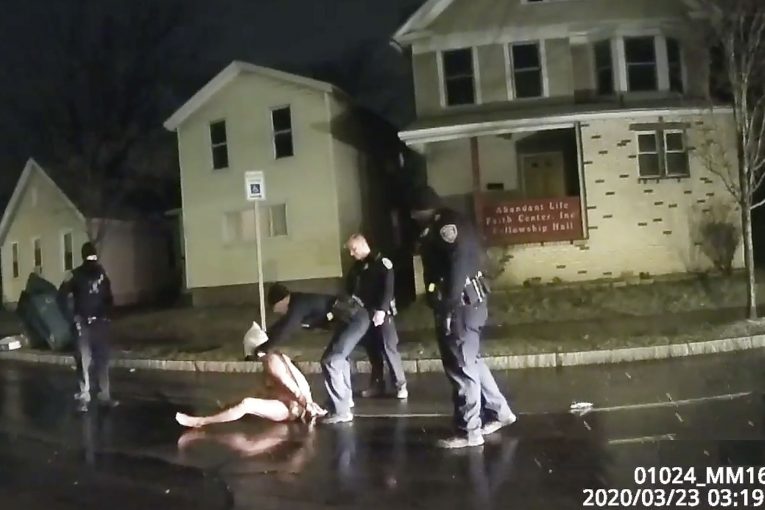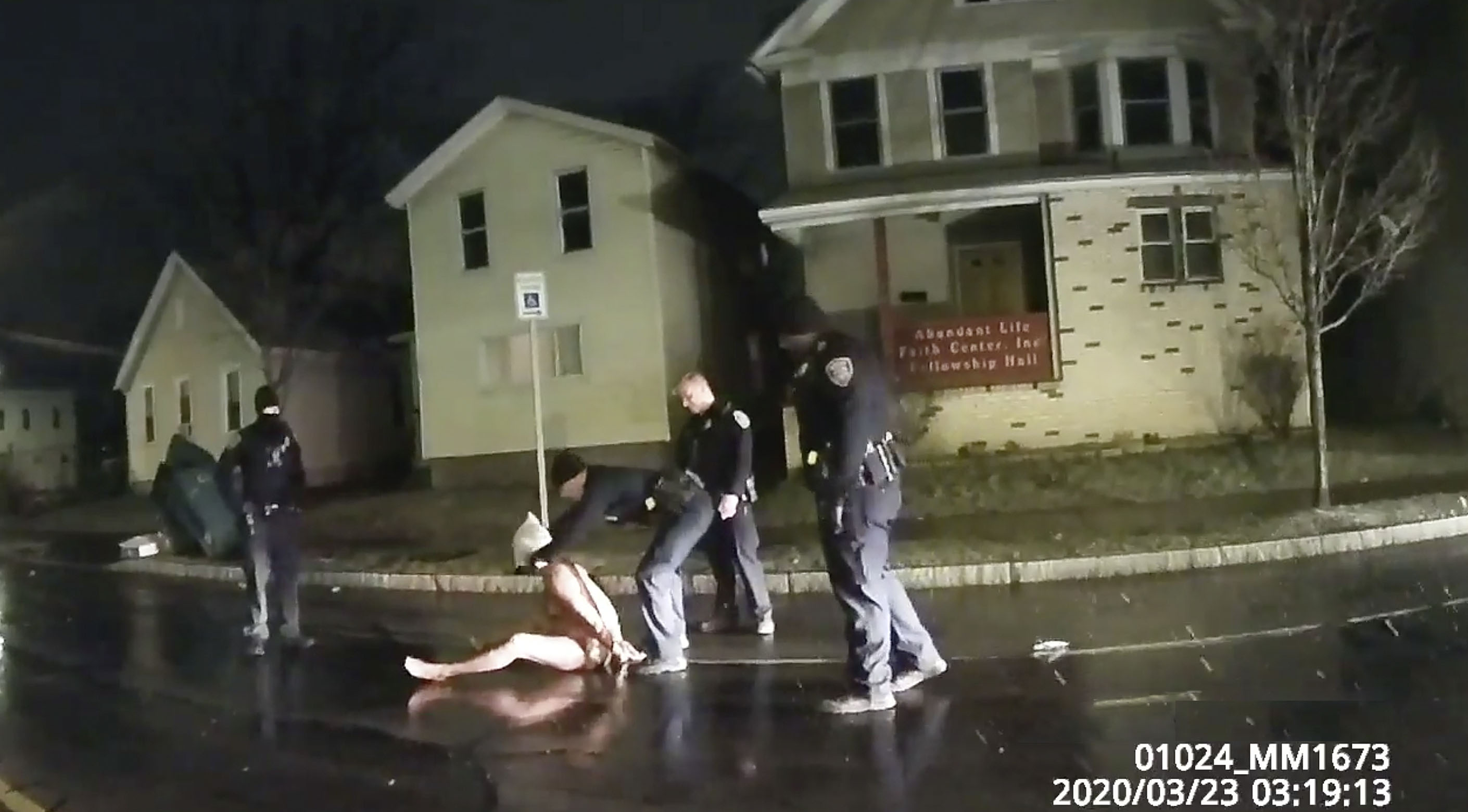

By Sabah Muhammad
Daniel Prude’s family needed help. Prude was experiencing a mental health crisis, so his brother called the police. A week later, due to injuries sustained during that police interaction, Prude was dead. This is a nightmare scenario for any family, but it’s especially wrenching for Black families like mine. My brother was diagnosed with paranoid schizophrenia in 2007. As a young Black man with severe mental illness, his interactions with police are doubly fraught with peril.
Yet many states, including my brother’s home state of Georgia, have policies that require police interaction before families can get their loved ones the mental health treatment they need during a crisis. This rule puts our loved ones at risk and needs to change.
In seven states, including Georgia, the law requires that a  person be shown to pose an “imminent threat,” an immediate risk of death or serious bodily harm to themselves or others before being involuntarily hospitalized. At the same time, for police, facing an “imminent threat” can constitute legal justification for using deadly force. If a Black man with severe mental illness must present an imminent danger in order to involve the police, what happens when police, who are subject to implicit bias or outright racism, arrive?
person be shown to pose an “imminent threat,” an immediate risk of death or serious bodily harm to themselves or others before being involuntarily hospitalized. At the same time, for police, facing an “imminent threat” can constitute legal justification for using deadly force. If a Black man with severe mental illness must present an imminent danger in order to involve the police, what happens when police, who are subject to implicit bias or outright racism, arrive?
When people with paranoid schizophrenia experience psychosis, a brief window of opportunity opens to get them into the mental health system to obtain the treatment they need. Unfortunately, securing such help has never happened successfully for our family. The window was always too brief for my brother to pass through.
That is because there are barriers between people like my brother and treatment. The first hurdle is the imminence standard. The second are laws that say only police or mental health professionals, not family or a responsible adult, can request an emergency evaluation and inpatient civil commitment. The third is the implicit racial bias of responding police officers.
Whom do officers see when they encounter my brother in the throes of psychosis? As in the case of Anthony Hill, who was tragically killed during such an episode, officers too often perceive a dangerous Black criminal and not a sick human being, increasing the probability that deadly force will be used.
This is the agonizing choice Black families face. We know we are risking our loved one’s life, yet placing that phone call is our only option.
When we call 911 and use the words “mentally ill and dangerous,” police inevitably arrive with five or more squad cars and step out with guns drawn. If we don’t call the police, our loved one’s psychosis will only worsen. So, we make the call and pray.
The odds are not in our favor. Nationwide, a person with severe mental illness is 16 times more likely to be killed during a police encounter.
We can do better. Dropping the “imminent threat” standard is one solution my organization, the Treatment Advocacy Center, recommends in an upcoming report on state involuntary-treatment laws.
Waiting until an individual poses an imminent threat allows untreated psychosis to devolve into permanent brain damage. We do not ask heart attack or cancer patients to wait to seek help, yet we require that of the families of individuals with severe mental illness. Further, the imminence requirement closes the window to early intervention through the civil commitment process and inappropriately places sick individuals in the hands of the criminal justice system.
In states that have updated their standards to address this issue, the situation can be just as volatile if law enforcement improperly interprets the law to require an imminent threat when it doesn’t. Police training should align with updated laws. In practice, this doesn’t happen all the time.
We also recommend that states allow any responsible adult, or at a minimum a guardian or family member, to be authorized to petition the court for both emergency evaluation and inpatient civil commitment. We provide food, clothing and shelter; we know our loved ones. Laws that require police to initiate this action put our loved ones in danger. Some states give mental health professionals this authority, but they may have limited interactions with our loved ones, who often resist treatment in the first place due to their severe mental health issues.
My brother’s symptoms cause him to experience terrifying breaks from reality marked by paranoid delusions and hallucinations. This is not a safe state of mind for anyone, especially a young Black man, to be in when encountered by people with guns.
Changing the laws to limit police encounters with individuals with severe mental illness will save many lives, but especially Black lives.
Sabah Muhammad, a former public defender, lives in D.C., where she serves as legislative and policy counsel at the Treatment Advocacy Center.
To sign up for our new newsletter – Everyday Injustice – https://tinyurl.com/yyultcf9

The mental health issue is a bear. It may not be solvable.
Watched yesterday as five squad cars, a fire truck, and ambulance responded to a person clearly having an episode. Seemed like overkill – we learned from police that it was the third time that day they had responded to the same person, not a local, and he had broken windows earlier.
Odd within a few minutes on that corner I noted two men walking around without shirts – within an hour, both had police responses. Perhaps someone with a knowledge of mental health could make the connection is between public shirtlessness and mental illness.
While I agree a definitive solution may not be achievable, we could certainly achieve improvement. To do so would require a change in perspective into which professionals are best equipped to handle mental health crises.
Much dismay has been expressed about the term “defunding the police”. What this dismay does not consider is that other agencies and professionals who might be better equipped than the police have been “defunded” for decades to achieve increased police funding.
I think it is long past time to reconsider whether the police are the best venue through which to address the problems of mental health, homelessness, and poverty.
I think first priority is to change the laws about how to get folk into MH assessment/treatment… otherwise, like ‘spinning wheels’…
This passage struck me…
Particularly when the MH sufferer is an adult… seen this in my extended family, and those of others, where ‘family’ is precluded from having the emergency evaluation done (and need for streamlined process to get the Court to do an inpatient civil commitment, at least for a week or two)… even when the afflicted adult is a member of the household…
Until the laws are revised, we’re kinda’ stuck with PDs being ‘first responders’, funding, etc., aside…
Note – when I said it may not be solvable, I did mean we could achieve improvement, but after watching this issue churn for 50 years and only get much worse of late, I question if we are structurally capable to do anything to improve due to group-think stupidity. My pessimism is only heightened by the bungling of Covid-19 by gov’t on so many levels.